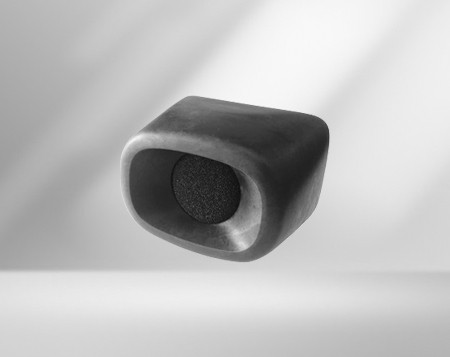source:Industry News release time:2022-04-16 Hits: Popular:Brand bar audio wholesale

Operators of KTVs, bars, and entertainment bars often encounter the problem of customers complaining that singing is "tired". The sound engineer feels good after debugging, but the guests still feel "tired" when singing. Where is the mystery? Here are some major tuning ideas to avoid singing "tired".
1. There is a gap between the timbre restored by the system and my own timbre
People are very familiar with their own voices. When facing a set of stereos and singing with a microphone, if the sound from the stereo is different from the impression of their own voice in people's minds, people will subconsciously change the singing method, To find a way of vocalization that is closer to your own voice is to imitate your own voice. Because I can't sing completely relaxed, my throat quickly gets tired. When audio debugging personnel debug the microphone, they use their own voice to debug. People have a better understanding of their own sound defects. Therefore, many debugging personnel will use mixer equalization to beautify their own sound defects. This way of beautifying your own voice defects is effective for yourself, but it may not work for others, because everyone's voice characteristics are different. For example, if your voice is not bright enough to improve the mid-high frequency, if you switch to a singer with a very bright voice, the mid-high frequency will be too high. If you don't adjust it back, the singer will deliberately suppress his voice when singing, so that Tired of singing.
To make singing "not tired", tuning requires skills
Therefore, the fundamental reason why the microphone feels tired is that the restoration of the entire sound system is not good, and the singer's own voice cannot be restored, so that the singer needs to be distracted to find his own voice when singing. Because he can't completely relax, he is tired. . Therefore, the idea of microphone tuning is not to beautify your own voice, but to restore your own voice.
2. The system transient response is not good
The so-called transient response, which is usually said to have a poor sense of speed or poor maneuverability, can be simply understood as "to come and go quickly". For example, if you make a short explosive sound, such as "Boom", it should be a short "Boom" sound through the microphone all the way to the speaker. However, if the transient response of the system is not good, the "boo" sound will appear to be slow in sound and slow in reception. In exaggeration, the short plosive sound will be extended to "cloth-oh-", thus losing The characteristic of short bursts is eliminated, resulting in dynamic distortion. "
Why does the poor transient response of the system make singing difficult? In fact, when singing, the interpretation of the lyrics is different from the usual speech. Singing needs to rely on breath control to grasp the expression of timbre, pitch, rhythm and strength. If the transient response of the system is not good, then singing according to normal habits, the feeling is not expressed correctly. For example, a certain lyric needs to burst out suddenly, but the sound from the speaker is not expressed in a normal way, and the singer will subconsciously sing in a way that enhances the breath; for example, in order to regain the lost feeling, the singer will also Enhance the breath to highlight the details that feel lost or weakened. If you use too much breath, you will be tired of singing naturally.
What causes the system's poor transient response? It can be said that from the microphone to the mixer (or pre-amp) to the power amplifier to the speaker, every link has an impact. Therefore, in order to obtain the effect of not getting tired of singing, the later debugging is only a icing on the cake. The key is to choose the right product when the system is configured. If the product has a good transient response, it can be done with half the effort when it comes to post-adjustment. This is also one of the reasons why the system composed of some high-quality products, the microphone does not even need to be adjusted, and the sound is basically satisfactory. In order to better meet the commercial requirements, it is necessary for the engineer to do more work in the equipment selection in the early stage, and choose some products with relatively good transient performance as much as possible. Not only easy to meet customer requirements, but also reduce their work pressure.
Popular recommendation
Resolution 4E Bar speakers Factory
2021-07-16Resolution 2 S8KTV audio Vendor
2021-07-17XD18I Bar speakers wholesale
2021-07-26I5 Concert sound Merchant
2021-07-26EV O7T Speaker bar Vendor
2021-07-16A3 Home ktv audio Merchant
2021-07-26Resolution 4T Touring Bar use sound Vendor
2021-07-16SB 210A Bar brand audio Vendor
2021-06-08F55 Bar speaker company
2021-07-16Resolution 5S skeletal Concert sound Vendor
2021-07-16F81 Bar speaker company
2021-07-16C12 Bar hall sound Merchant
2021-07-26Finnish AURA AUDIO product art design.Professional Bar Audio Vendor
2021-12-08The role of the power amplifier in the sound system.Campus outdoor audio sales
2021-12-20Several Factors Affecting the Use Quality of Conference Audio Equipment.Lanzhou Conference Room Audi
2022-06-13Precautions for the use of stage audio
2022-02-14Well-known bar audio FUNKTION ONE Mateng audio
2022-12-20Five points of attention when choosing a conference room sound
2022-01-20The audio industry may be expected to develop with the smart home!
2022-09-07Chongqing WUDU boundless space bar audio is provided by Ma Teng Audio
2022-09-05Teach you how to reduce the distortion in the design of the speaker system
2022-10-21Remember to pay attention to a few points when buying KTV audio
2021-09-14Zigong SPACE Net Red Bar Special Audio---Mateng Audio
2022-11-10Historical development of professional audio amplifier!Bar sound bar Vendor
2021-10-19